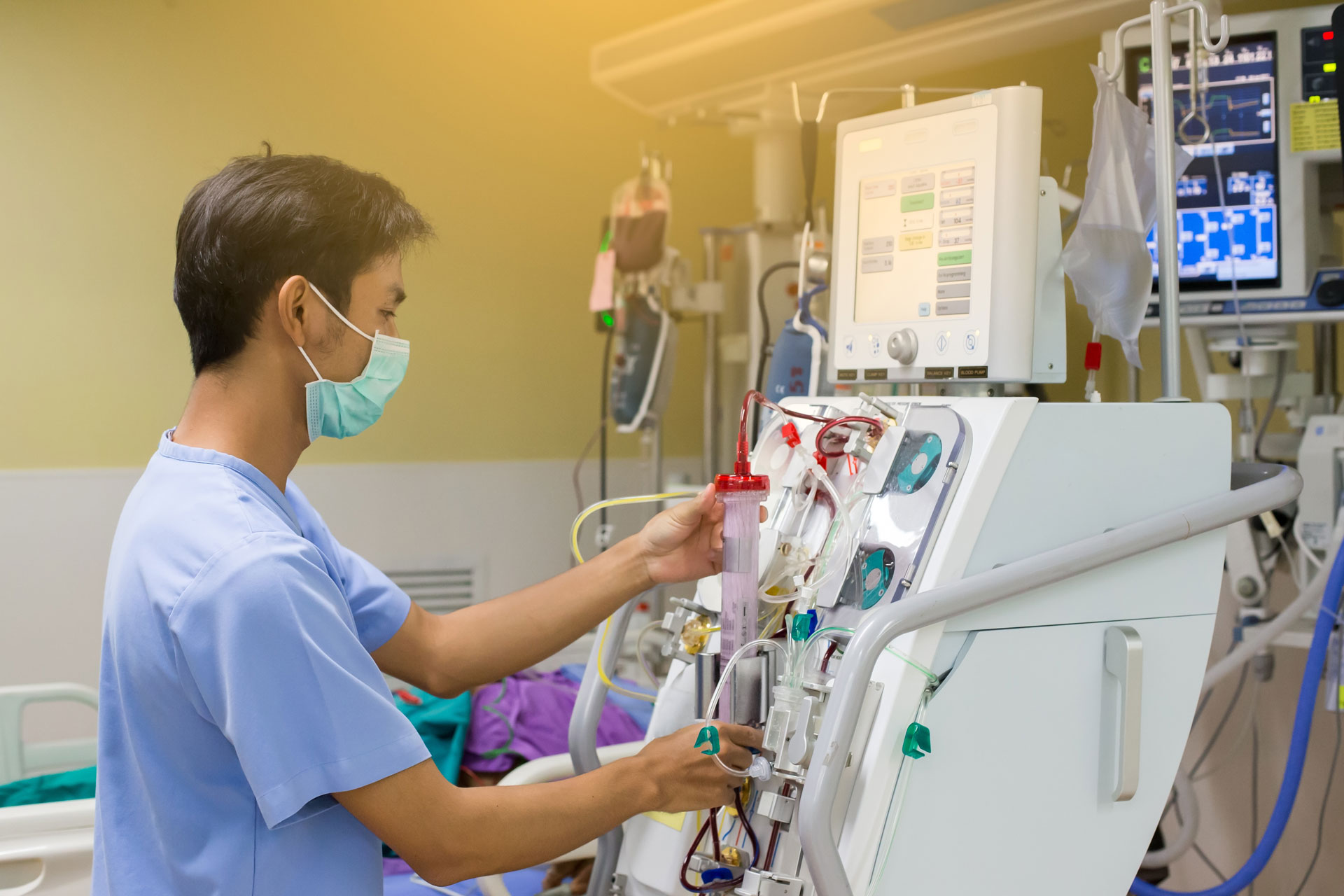Understanding the Role of a Dialysis Technician: The Backbone of Renal Care
Dialysis technicians are crucial in the healthcare system, providing essential support in the treatment of patients with compromised kidney function. These skilled professionals are responsible for the operation and maintenance of dialysis equipment, as well as supporting patients through their treatment. Here’s an in-depth look at the role of a dialysis technician and why their work is fundamental to effective renal care.


What is a Dialysis Technician?
A dialysis technician, also known as a hemodialysis technician or renal technician, is a healthcare professional who specializes in operating and maintaining dialysis machines. Their role is vital in ensuring that patients with kidney failure receive safe and effective dialysis treatments. Dialysis technicians work in various settings, including dialysis centers, hospitals, and home care environments.

Key Responsibilities of a Dialysis Technician
1. Setting Up and Operating Dialysis Machines: One of the primary responsibilities of a dialysis technician is to prepare and operate dialysis machines. This involves assembling the machine, preparing the dialysis solution, and ensuring that all equipment is functioning correctly. Technicians must also calibrate the machines and adjust settings according to the patient’s treatment plan.
2. Monitoring Patients During Dialysis: During dialysis sessions, technicians monitor patients to ensure that the treatment is proceeding safely. They check vital signs, assess the dialysis access site (such as a fistula or catheter), and observe the patient for any signs of discomfort or complications. Technicians may need to make real-time adjustments to the machine based on these observations.
3. Troubleshooting and Maintenance: Dialysis machines require regular maintenance to function properly. Technicians are responsible for performing routine maintenance, troubleshooting issues, and making necessary repairs. They ensure that all equipment is in good working condition to provide safe and effective treatments.
4. Infection Control and Safety: Infection control is a critical aspect of dialysis care. Dialysis technicians adhere to strict protocols to prevent infections and maintain a sterile environment. This includes proper handling of equipment, cleaning and disinfecting machines, and following infection control guidelines.
5. Patient Interaction and Support: Dialysis technicians often interact directly with patients, providing support and reassurance during their treatment. They assist patients in getting comfortable, answer questions about the procedure, and offer emotional support to help them cope with the challenges of dialysis.
6. Documentation and Record-Keeping: Accurate documentation is essential in dialysis care. Technicians maintain detailed records of each dialysis session, including machine settings, patient responses, and any issues encountered. This documentation helps ensure continuity of care and supports the work of other healthcare professionals.
7. Collaboration with Healthcare Teams: Dialysis technicians work closely with nephrologists, nurses, and other healthcare professionals to provide comprehensive care. They communicate patient information, report any issues, and contribute to the development of individualized treatment plans.

Skills and Qualities of an Effective Dialysis Technician
1. Technical Expertise: Dialysis technicians must have a thorough understanding of dialysis equipment and procedures. This includes knowledge of how to operate and troubleshoot dialysis machines and perform routine maintenance.
2. Attention to Detail: Precision is crucial in dialysis care. Technicians need to be detail-oriented to ensure that machines are set up correctly, treatments are administered accurately, and any issues are promptly addressed.
3. Strong Communication Skills: Effective communication is key to interacting with patients, addressing their concerns, and collaborating with the healthcare team. Technicians must be able to convey information clearly and empathetically.
4. Problem-Solving Abilities: Dialysis technicians must be adept at identifying and solving problems that may arise during dialysis sessions. Quick thinking and effective problem-solving skills are essential in managing complications and ensuring patient safety.
5. Compassion and Patience: Dialysis can be a challenging experience for patients. Technicians need to exhibit compassion and patience, providing emotional support and understanding to help patients feel comfortable and cared for.

When to Consult a Dialysis Technician
1. During Dialysis Treatments: Dialysis technicians are directly involved in the administration of dialysis treatments. Patients will interact with technicians during their sessions, where technicians will set up the equipment, monitor the process, and provide support.
2. For Equipment Issues: If patients or healthcare providers encounter problems with dialysis machines or equipment, a dialysis technician will be consulted to resolve these issues and ensure proper functioning.
3. For Routine Maintenance: Regular maintenance and calibration of dialysis machines are performed by technicians. They ensure that equipment remains in optimal condition for safe and effective treatments.
Dialysis technicians play a vital role in the renal care continuum, ensuring that patients receive safe, effective, and comfortable dialysis treatments. Their expertise in operating and maintaining dialysis equipment, combined with their commitment to patient care and safety, makes them indispensable members of the healthcare team. By understanding the essential functions of a dialysis technician, patients and their families can better appreciate the comprehensive care they receive and the dedication involved in managing their renal health.




